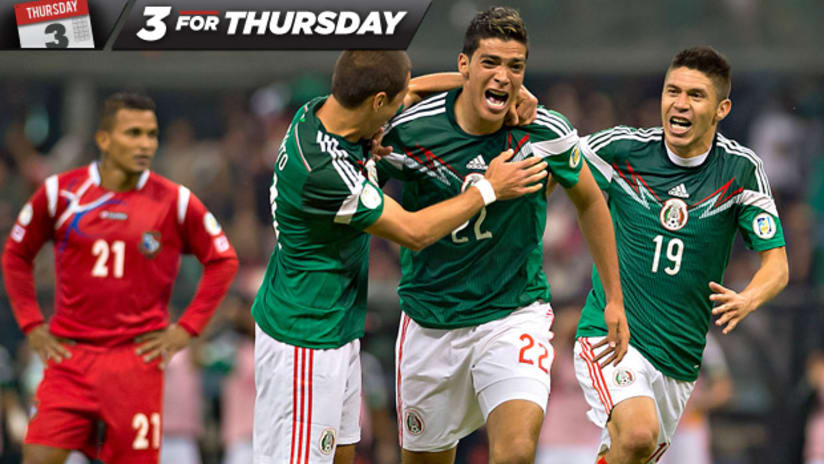The dust is settling on a wild final night of CONCACAF World Cup qualifying, and Mexico's skin-of-their-teeth survival – thanks to Graham Zusi's late heroics against Panama – has clearly been the big story of the past few days. Somehow, El Tri managed to finish fourth in the Hex despite winning just two of their 10 games, leading to some grumblings that Mexico did not deserve to survive.
And though many American soccer fans would love nothing more than to see their hated rivals suffer the humiliation of missing out on a first World Cup since 1990 (and they still might if they lose a playoff against New Zealand), it may actually be a good thing for the state of soccer in the US for El Tri to make it to soccer's biggest show. Here are three reasons why:
The EconomicImpact
If the numbers floating around are to be believed, the Mexican federation, TV networks and advertisers could stand to lose anywhere from $600 million $1 billion in revenue if Mexico fail to qualify for the World Cup.
You'd better believe that'll have a knock-on effect in the States. For one, the World Cup is a soccer TV ratings bonanza in the US. Having a Mexico-less World Cup would likely diminish those ratings, which would in turn have an effect on future TV deals.
And like it or not, Mexican and American soccer are probably most intertwined in their economic interests than in any other facet of the game. The Mexican and Mexican-American markets are big factors in the rising stature of the game in the United States, and though the average USMNT fan might not feel it, a World Cup without Mexico could hurt the growth of the game in the US from a financial standpoint, with a number of major US companies having made sponsorship agreements with the Mexican national team on the assumption they'd make it to Brazil.
The Competitive Factor
As far as getting experience in competitive games against quality sides, the only situation worse than the US and Mexico's in CONCACAF might be El Tri's future opponents in New Zealand.
Whatever their form, World Cup qualifiers against Mexico represent one of the few chances the USMNT gets to test themselves against a quality opponent (read: a team that can be competitive in the World Cup) in a competitive setting in the four-year span between World Cups. In fact, it's the only chance unless the US are participating in the Confederations Cup.
Though Mexico's struggles are more than likely a one-off occurrence in the long run, it bears considering that if this is the start of some bigger slide, an inferior Mexico team would mean two fewer chances for the US to get those highly competitive games.
The knock-on effect the reduced income for the Mexican federation would have could mean less money to spend in areas like player development, coaching, and infrastructure. While the results of Mexico's youth teams certainly indicate there is nothing to worry about in terms of the talent pipeline, that could start to change, and ultimately hurt the US as they seek to improve.
It's Simply a Better World Cup
Not to knock a team like Panama, who have made vast improvements over the last 10 years, but when push comes to shove, who is going to give teams like Italy, Argentina and Nigeria a better game? Panama or Mexico?
For all the struggles they've had in 2013, Mexico are ultimately far-better equipped on a talent and experience level to square off with the best teams in the world. The US are the only team from CONCACAF that can come remotely close to saying the same.
Having El Tri representing CONCACAF in Brazil will be better for the region (and could help CONCACAF preserve the 3.5 berths it gets in the World Cup), ultimately create a better viewing experience for fans watching the tournament and generate more buzz among fans in the US who may just be getting drawn to soccer because of the World Cup.














